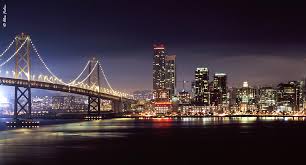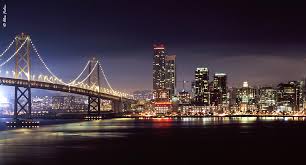Petaluma and Santa Rosa, among many other Bay Area cities, are considering ending the use of natural gases in homes as a way of combating climate change and reducing greenhouse gas emissions. The proposed rules would mandate that all newly built low-rise residential buildings are designed to use electricity rather than natural gas. While some worry that this is overreaching and intrusive regulation, others argue that it is an essential step towards a sustainable future.
Berkeley recently became the first city in the United States to ban natural gas line installation in low-rise residential homes; now, following their example, a number of Bay Area cities are assessing the impact of putting similar regulations in place. A total of over fifty jurisdictions across the nation are considering this. As with nearly all regulations, not everyone is happy with the idea. “Natural gas is an affordable and efficient energy source that provides reliability during the on-going transition to more renewable energy sources,” Catherine Reheis-Boyd of the Western States Petroleum Association told the San Francisco Chronicle, “Banning its use in municipal buildings, homes or business in San Francisco or other cities is not mindful or inclusive way of planning for our state and nation’s energy future.”
Rachel Kuykendall, senior program manager at Sonoma Clean Power, states that despite this common sentiment, data shows all-electric homes to in fact be cheaper, by an average of $6,171 to be exact, to build than homes powered by natural gas. The majority of these savings come from not having the expense of installing gas infrastructure pipelines. Kuykendall also mentions that all-electric homes emit an estimated ¼ of greenhouse gas emissions as compared to natural gas-powered homes, and generally come with far fewer safety concerns. “Additionally, some of the jurisdictions we are working with are concerned about the health impacts of natural gas,” she states, “These may include leaking in the gas pipelines, pipeline explosions, difficulty in shutting off the gas infrastructure in the case of an emergency, and carbon monoxide production or gas leaks in homes.”
Contrary to some popular misconceptions, these regulations will not require previously existing homes to be retrofitted or altered in any way, but will simply prohibit the installation of natural gas lines in new homes being built. This would create a slow phase-out of natural gas dependency in residential buildings, transitioning neighborhoods onto electricity over time.
“New construction is a critical first step,” Panama Bartholomy of the Building Decarbonization Coalition told the Press Democrat, “Ultimately, we need to get off natural gas, and the first thing you do is get off the natural gas network.” The Building Decarbonation Coalition is one of many organizations working to decrease greenhouse gas emissions in California.
Given California’s plans to drastically reduce greenhouse gas emissions in coming years, these new regulations are likely just a few of many to come. While the end of natural gas use in residential homes will have its impact, many environmentalists say it is just the beginning of a large-scale solution to the daunting issue of climate change. With more and more cities considering bans on natural gas use in homes, the Bay Area becoming an electric-powered region could be sooner in the future than one might think.





![[Both photos courtesy of sonoma.edu]
Ming-Ting Mike Lee stepped in as the new SSU president following Sakakis resignation in July 2022](https://sonomastatestar.com/wp-content/uploads/2024/04/CC4520AB-22A7-41B2-9F6F-2A2D5F76A28C-1200x1200.jpeg)



























